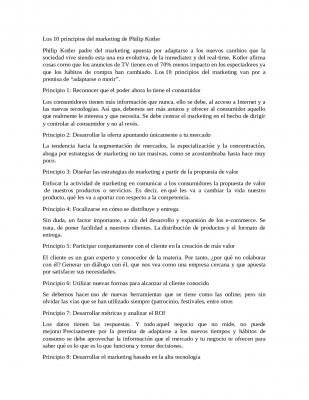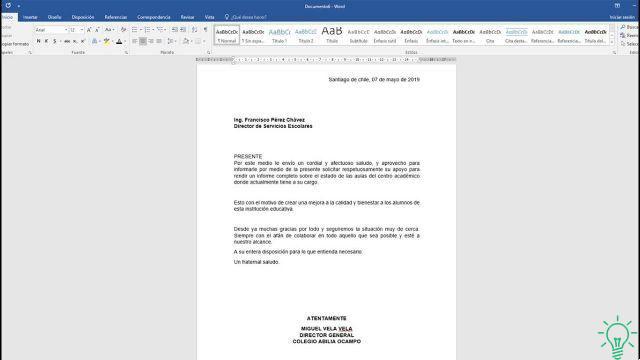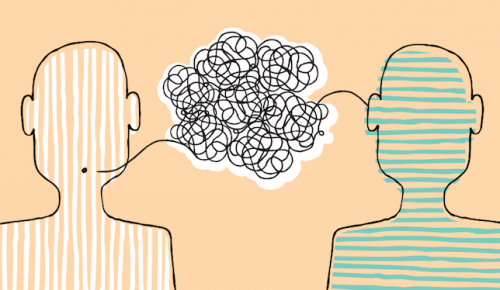
Last update: 17 September, 2019
Peter Drucker once said a very singular thing that clashes with the new means of communication: "In communication the most important thing is to listen to what is not said".
However, how do we understand what is not being said if we do not have the opportunity to observe our interlocutor directly? How can we tell if his is a communicative silence or if he simply does not speak because he is busy doing something that has caught his attention and interrupted the conversation?
As Drucker argued, a conversation involves many gestures, movements and expressions that do not "speak", but say a lot. However, with the means of communication we have available today, such as instant messaging applications or e-mail, these details are lost. One wonders, is the quality of our personal relationships affected by all this?
The new means of communication
There are undoubtedly new forms of communication that are changing the way we see the world. What used to be a simple conversation between people or a phone call has now become a group chat on WhatsApp, a comment on Facebook or a 140-character post. Twitter. These are just a few of the most common examples.
New technologies are rapidly changing the way we communicate. Face-to-face contact seems increasingly obsolete. In this sense, even if the new means provide many advantages, such as faster and more practical communication, they also have negative aspects. Let's think about it, are a conversation on WhatsApp and a conversation in person equally effective?
According to cognitive psychologist David R. Olson, there are some factors to take into account. We also add that communication is divided into three acts: locutive, illocutive and perlocutive.
The locutive act refers to the production of sounds, the words and the meaning of prayer. The illocutionary act concerns the force of the prayer and, finally, the perlocutive one refers to the effects or intentions of the prayer, for example inspiration, irritation, deception or impression.
Here's an example:
He told me: "Give it to him". - Locutive act.
She advised me to give it to her. - Ilocutivo act.
She convinced me to give it to her. - Perlocutive act.
The locutive act is the simple action of saying something while the illocutionary act implies different uses of the same phrase based on how it is understood when it is pronounced (for example, depending on the context, the phrase "I am cold" can underline the desire for the interlocutor to close the window or to borrow his coat or it can simply be information about his physical state, etc.).
What are the conclusions reached by the psychologist?
A different communicative reality in which the illocutionary act is lost
Considering that a conversation cannot be transposed exactly into writing and reading, according to Olson, the illocutionary act is lost with the new means of communication, therefore only the locutive and the perlocutive act are maintained.
Therefore, some relevant aspects of communication, such as tone of voice and its fluctuations, are missing. Of course we can use punctuation marks to indicate exclamation or capital letters to "raise your voice", but it is not possible to interpret the accent or intonation which could indicate nervousness, anger, disappointment, etc.
This deficit in the locutive aspects of the conversation can not only generate frustration or insecurity in the recipient or recipients of the message, but also in the sender because he may have the feeling that something is missing so that the interlocutor can understand it.
Particularities of the new means of communication
Another peculiarity of these new means of communication concerns conversations with strangers. In other words, we cannot understand what the interlocutor is like not having him in front of him, it is more difficult to get an idea of this person.
We cannot say for sure whether this is a negative or not. It is simply different. What is certain is that closeness, proximity and the illocutionary act fail. In fact, this could give space to inferences related to the real intentions of the interlocutor.
It is evident, therefore, that virtual communication is not necessarily worse than traditional communication, it is simply different and suitable for different purposes. Furthermore, nowadays we have technological devices that allow us to video call a person, then to call and see them at the same time.
When two people communicate via WhatsApp, for example, or with other instant messaging applications, there is another variable to consider. If these people know each other well, a part of the illocutionary act can be preserved, therefore the two interlocutors will be able to interpret their respective messages fairly correctly.
In reality, new media and new forms of communication simply offer more to conversations. Does this affect the quality of communication? Of course, technology allows us to maintain conversations that we otherwise might not have, but somehow it penalizes their quality.
Finally, some studies reveal that the growing feeling of loneliness in today's society partly depends on the use of certain media over others. On the other side of the screen there may be people, but it is difficult to hear them "close". A video call allows us to look them in the eye, but it does not give us the opportunity to hug them or take them by the hand.
It is right to use technology to communicate with those who are far away, but let's put it aside to talk to those who are close. We take advantage of new forms of communication, but don't let their handicaps compromise our personal relationships.

























